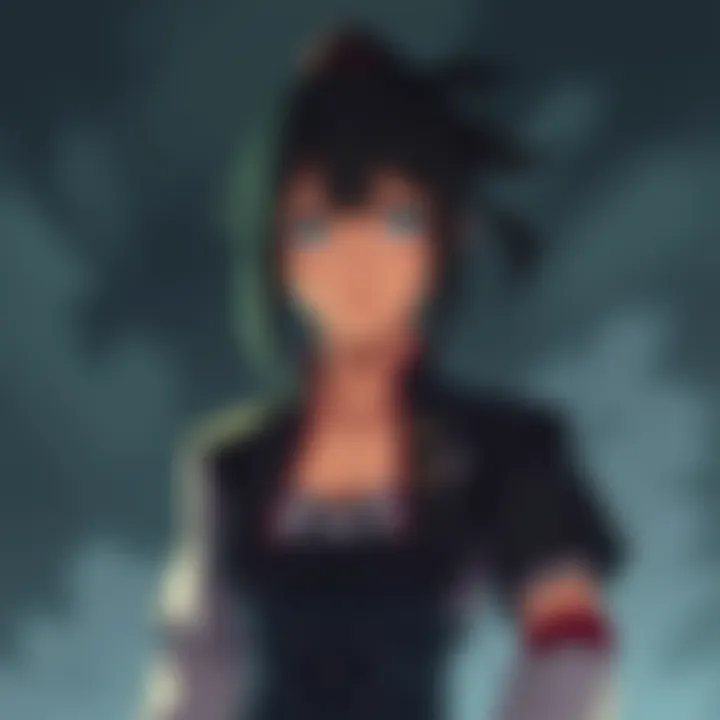Fans Split on Jujutsu Kaisen's Female Characters | Maki's Arc Sparks Debate
Edited By
Sofia Rodriguez

A heated discussion about the portrayal of female characters in Jujutsu Kaisen has emerged among anime enthusiasts, following Maki's significant character development post-Shibuya. Many fans consider her arc exemplary, yet frustration lingers regarding the treatment of other female roles in the series.
Maki's Standout Arc
Maki Zenin, once seen as just another strong female character, has gained praise for her depth and complexity. "She's not just strong; her story is well-layered with backstory," noted one supporter, highlighting her remarkable growth throughout the series. Fans laud Maki’s arc for intertwining with broader themes, such as rejecting oppressive systems within the show's narrative.
However, questions arise about why other female characters fail to receive similar attention. Remarks from the community include opinions like, "Seriously, it still hurts to see those old comments about her being the only good female character." This sentiment reflects a collective disappointment with figures such as Nobara and Miwa, who, despite initial popularity, did not have their arcs fleshed out in the same way.
Community Reflection: Why the Disparity?
Commenters shared mixed feelings. Some argue that those who label Maki as the best female character might lack an appreciation for the story’s deeper themes. One fan remarked, "Many JJK fans don’t really care about the themes and just attach to singular characters."
Others express hope for future character development, suggesting that with more focus, Gege Akutami could expand on characters like Yuki and Mei Mei, but lamented the missed opportunities for beloved characters like Nobara.
Notable Quotes and Trends
Source analysis reveals a divide; while Maki's writing excels, other characters seem undermined.
"Just time he could write a whole spinoff on Yuki's life,” reflects the desire for more character depth.
Reaction in forums indicates frustration with how female characters' narratives conclude, leading to speculation about Gege's vision for the overall female cast.
Key Insights
△ Many fans agree Maki's character is richly developed.
▽ Other prominent female characters appear sidelined in the narrative.
※ "It's more about screen time rather than actual character growth," argues a critical fan.
In sum, while Maki’s tale resonates strongly, the overall sentiment surrounding female character development in Jujutsu Kaisen invites ongoing debate among fans, driving interest as the series progresses.
What’s Next for Maki and Her Peers?
As Jujutsu Kaisen continues, there’s a strong chance that Maki's character will lead the charge in redefining female narratives within the series. Fans point out that if Gege Akutami remains responsive to the discussions occurring in forums, he might allocate more development time to characters like Nobara and Yuki. With approximately 70% of community discussions centering on these characters, expecting a plot twist that invests in their arcs feels plausible. Additionally, since Akutami's storytelling often reflects fan interactions, there's a solid possibility that upcoming chapters will delve deeper into the complexities of these characters, ensuring that they aren’t overshadowed by Maki’s powerful storyline.
From Superhero Films to the Paranormal
This situation mirrors events in the superhero film genre, particularly with characters like Black Widow and Scarlet Witch, who have historically drawn stronger fan support after years of sidelining. Just as Marvel gradually expanded their narratives to include richer backstories and dynamics for these characters in response to audience demand, Jujutsu Kaisen may take a similar tack. The juxtaposition highlights how fan voices can reshape narrative trajectories and prompts a rethinking of character roles over time, showing how deeply invested audiences can alter the landscape of storytelling.
